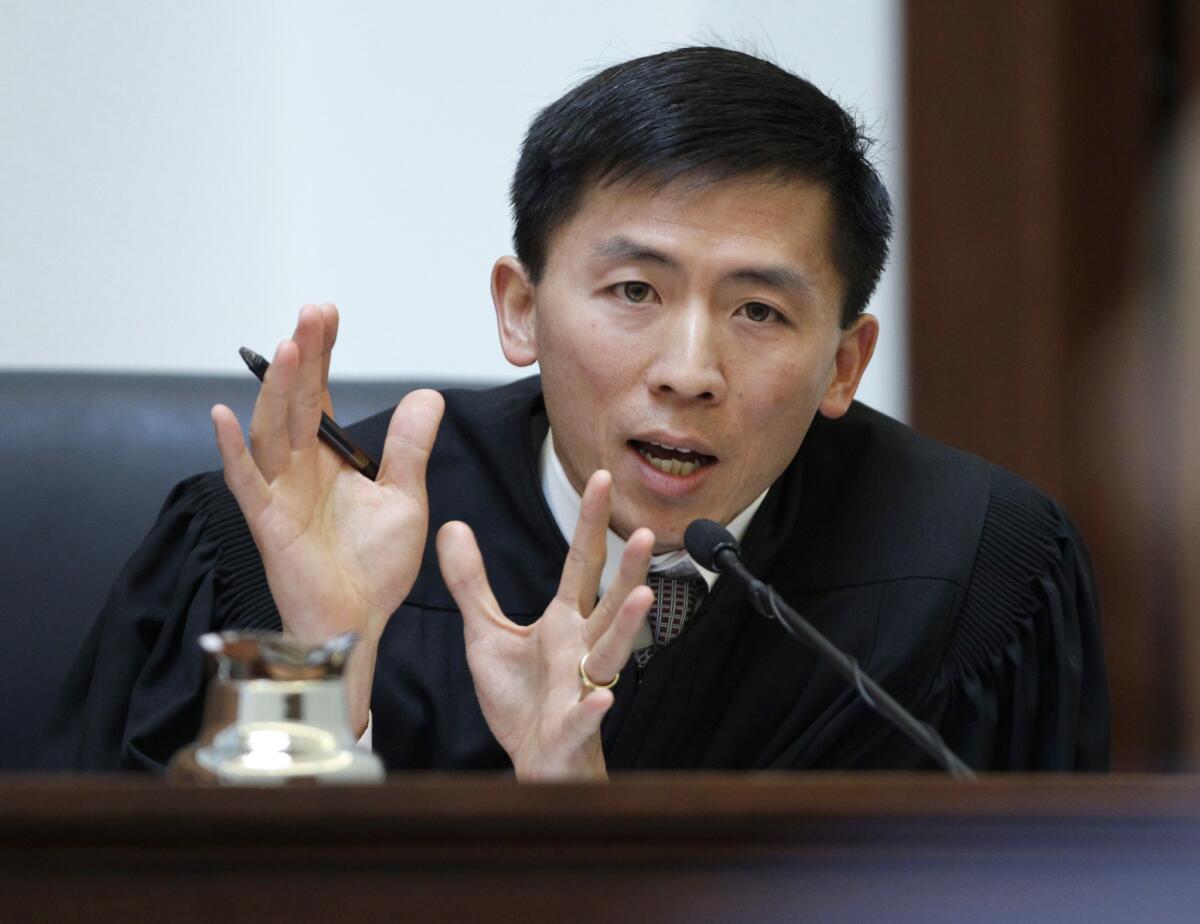California Supreme Court allows therapists to challenge law on child porn reporting

Psychotherapists have spent years fighting a 2014 California law requiring them to report patients who confided having looked at child pornography, complaining that it deters people with sexual compulsions from seeking treatment and forces therapists to call the police on patients they do not believe pose a risk.
But they knew they faced a steep hurdle in getting the law overturned, citing what one scholar called “the ick and disgust factor” at the mere thought of the subject.
A sharply divided California Supreme Court grappled with the case Thursday, deciding the state must show the law actually helps children by presenting evidence at a trial.
In the 4-3 decision, the state’s highest court overturned rulings that threw out a lawsuit brought by therapists who treat sexual compulsions, addictions and disorders.
The court did not give therapists everything they wanted — a clear ruling that the law was unconstitutional — but revived their lawsuit so the effects of the reporting requirement can be closely examined.
The therapists challenged the 2014 reporting requirement a month after it became law. It requires them to report to police the names, phone numbers and addresses of any patient who admitted having downloaded or streamed images depicting minors in obscene ways. Failure to report can result in a fine and the loss of a therapist’s license.
The court majority — the four justices appointed by former Gov. Jerry Brown — said the lawsuit may go to trial because the therapists asserted a recognized privacy interest under the California Constitution.
“Our holding does not mean the reporting requirement is unconstitutional,” Justice Goodwin Liu wrote for the majority. “It means only that the burden shifts to the state to demonstrate a sufficient justification for the incursion on privacy as this case moves forward.”
The three Republican appointees on the court, all former prosecutors, dissented, saying the 2014 amendment was a mere technical update.
A Los Angeles judge threw out the therapists’ suit on a pretrial motion before evidence could be taken. A Los Angeles-based state court of appeal unanimously upheld that decision.
But the Supreme Court majority said evidence was needed to determine whether the law was constitutional.
The therapists who sued agreed that patients who have abused children or are likely to do so should be reported but balked at calling the police on patients who they believed were not a threat.
“No one disputes that the principal purpose of the reporting requirement — preventing the sexual exploitation and abuse of children — is a weighty one,” Liu wrote. “The main issue on which the parties disagree is whether the reporting requirement actually serves its intended purpose.”
Possession of child porn is a crime, punishable by prison and public lifetime registration as a sex offender. But state law has generally protected therapists from having to report patients who confided having committed a crime.
The majority said a trial could determine the effects of the 2014 law by examining the number of reports from psychotherapists and whether they produced prosecutions, reduced the market for child porn, or helped identify or rescue victims.
Evidence also might show whether the reporting requirement has deterred patients from seeking treatment, inhibited candid communication or compromised the accessibility or efficacy of treatment, the court said.
“Judicial review of duly enacted legislation is a delicate task, and our role is not to supplant the Legislature’s policy-making role,” Liu wrote. ``”But when a statute intrudes on a privacy interest protected by the state Constitution, it is our duty to independently examine the relationship between the statute’s means and ends.”
Ira Ellman, one of several scholars who sided with the therapists in the case, said he doubted the state would be able to prevail.
“Has the law reduced the market for child pornography?” asked Ellman, a retired law and psychology professor from Arizona State University and now a scholar at UC Berkeley’s Center for the Study of Law and Society. “Do you think they are going to be able to show that? It would be astonishing if they could show that.”
As an academic, he said, he liked the fact that the court wanted the case decided by empirical evidence. But he described the 4-3 vote as “soberly close.”
“The narrow margin here is a reminder there is a real ick and disgust factor that is triggered by any discussion of child pornography,” he said. “People’s stomachs turn, as does mine.”
Don L. Mathews, one of the therapists who sued, also predicted he and the other therapists would win the case. He said they have studies that show the vast majority of people who have looked at child pornography have never molested a child and are extremely unlikely to do so in the future.
“If you are going to say we have to break confidentiality, you are going to have to have good reasons for that,” said Mathews, who treats sexual addiction and other sexual compulsions. “We want to prevent abuse.”
The court said California was one of only seven states that require psychotherapists to report patients for possessing or having viewed child porn.
Before 2014, state law required therapists to report any patient who admitted developing, duplicating, printing or exchanging material depicting an obscene act involving a child.
Therapists accepted that requirement, seeing it as a way to catch people who developed or trafficked in child porn. The new law requires reporting of patients who have admitted streaming or downloading sexually explicit material involving minors — in other words, merely looking at it online.
Chief Justice Tani Cantil-Sakauye, writing for the dissenters, said downloading involves duplicating, and therefore the law did not technically change.
“The measure merely updated a definition to keep in step with modern technology,” she wrote.
Los Angeles prosecutors and the California attorney general’s office defended the law. A spokesperson for the attorney general said the office was reviewing the ruling. A spokesperson for Los Angeles County Dist. Atty. Jackie Lacey declined to comment.
The attorneys who argued the case were unavailable for comment.
More to Read
Start your day right
Sign up for Essential California for news, features and recommendations from the L.A. Times and beyond in your inbox six days a week.
You may occasionally receive promotional content from the Los Angeles Times.







